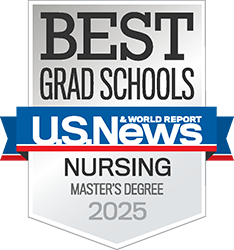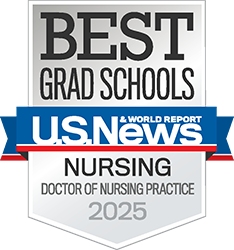
-
AcademicsEducational Programs
- Post-Graduate Program Overview
- Adult/Gerontology Acute Care Nurse Practitioner
- Adult/Gerontology Primary Care Nurse Practitioner
- Emergency/Trauma Care
- Emergency Medical Services Nurse Practitioner
- Family Nurse Practitioner
- Nursing Education
- Nursing Leadership
- Psychiatric/Mental Health Nurse Practitioner
- PracticeHealth Services
- InnovationResearch & Education
- CommunityConnection & Engagement



